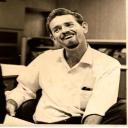Yahoo Answers is shutting down on May 4th, 2021 (Eastern Time) and beginning April 20th, 2021 (Eastern Time) the Yahoo Answers website will be in read-only mode. There will be no changes to other Yahoo properties or services, or your Yahoo account. You can find more information about the Yahoo Answers shutdown and how to download your data on this help page.
Trending News
Has There Ever Been A Piano Concerto For The Left AND Right Hand?
Before any of you get goofy on me and state the obvious, I’m not talking about the standard composition written for both hands. I’m talking about a unique (some would consider quirky) composition where separate parts of the composition is written for just one hand, where both hands would alternate playing?
Most of you are aware of the oddities, like Ravel’s ‘Piano Concerto for the Left Hand’ and why it was commissioned. Or piano exercises written for just one hand. But I’m wondering if any composer ever wrote serious music where both the right and left hands parts were performed separately during part or all of the composition?
And if not, why not?
Alberich, K-USC was playing the Ravel on my way home the other day and I just started wondering why I've never heard a Concerto For The Right Hand.
Nick, thank you the link to Alkan’s Etudes. The composition is a bit simplistic (as is most modern
music) but I enjoyed it. It sort of reminds me of David Lantz, but with a more obvious kinship to the past.
Nem, thanks for the link. I probably have heard the Arnold years before but overflowing heads sometimes spill older experiences. And dr, I thought his horn-dog friendships with Franz, Freddy and Aurore made Charlie a modern. I suppose in the future I should keep my details unfrivolous, especially while in a Sunday evening punish mood. David Lantz is to classical music what Walter Lantz is to Dutch Master painting.
Nick, read the lines above this where I've already mentioned Liszt (Franz), Chopin (Freddy) and George Sands (Aurore) and their friendships. Comparing Alkan's work to minimalist composers like Lantz and calling it modern was meant to be a joke. I thought that was clear enough but I guess it was too obscure. And. by the way, Walter Lantz (no relation to David that I know of) was an animator who created the Woody Woodpecker cartoon.
NOTE: I want to thank each of you for taking the time to reply here. The links were mosr welcome. As to a 'best' answer if it were up to me Nemesis, Petr and Nick would share it but YA doesn't work that way. So please don't feel slighted if your reply wasn't chosen. Again, I want to thank you all.
7 Answers
- petr bLv 79 years agoFavorite Answer
The most famous 20th century works, the concerti for left hand, were commissioned by pianist Paul Wittgenstein, of the famous Wittgenstein family of whom many were philosophers, writers and in other areas of the arts. He had lost his right arm in world war I, and went about commissioning works for the left-hand alone so he could have concerti and solo repertoire to perform.
The pianist also did his own transcription of works, of which there are many.
http://en.wikipedia.org/wiki/Works_associated_with...
The remainder of 'pre-Wittgenstein' left-hand repertoire, all solo piano, were composed more as problems to solve, and as exercises for the left-hand alone.
More lately, pianists Leon Fleisher, and Gary Graffman had serious left-hand / arm conditions, and that occasioned new commissions from more contemporary composers.
They are among a few who have suffered such conditions, Graffman commissioned, or had written for him, a concerto for left hand by Ned Rorem. There are other works by other composers as well, the occasions for their existence, likely, similar permanent or temporary conditions or injuries. There is also a 'large enough' body of work that the left-hand piece is a bit of a tradition: some pieces may be written with nothing more than that as incentive.
Jean-Efflam Bavouzet:
http://www.youtube.com/watch?v=avj8Uau1kVk&feature...
older recording -- but the amazing Samson Francois, piano:
http://www.youtube.com/watch?v=4sxfEM7RT34
http://www.youtube.com/watch?v=bwBZvitBI9g&feature...
Why Not: A right hand piece has the additional problem of being generally pitched to the upper registers of the keyboard, that meaning the music would have, literally, less body than a left hand work which is more readily pitched to the lower registers, with the occasional flight into the upper register - gives more an illusion of 'a whole pianist' than the opposite 'high most of the time occasional low-register' piece. .
Writing a work for alternate hands, each solo, sounds more like a gimmick to me than anything born of necessity: it might be a certain construct which could be an 'interesting' musical challenge, i.e. it ideally should not 'sound' like it is for one hand alone to begin with. (Witness the Ravel D Major, a monumental and beautifully crafted work that one would not realize, by just listening, that it was written for or performed by a one-handed pianist. Additionally, it is so well-crafted that re-arranging it for two hands completely alters 'the sound' and distorts the musical intention, it is that 'integrally' composed. -- apart from it being one of Ravel's four true masterpieces:-)
http://www.youtube.com/watch?v=avj8Uau1kVk&feature...
Having cited the Ravel as an ideal, I still think a piece for alternating hands, without the initial need due to absence of a limb, or temporary injury, would not have any 'reason' to exist, and would look, if not sound, 'odd' in performance. With the availability of the two hands, why limit oneself as a composer? It makes little sense beyond a sort of pedantic exercise.
Best regards.
- ?Lv 45 years ago
I love Prokofiev's piano concertos, some parts are angry, but he also goes into this world not again reached until Pink Floyd. His use of the piano with orchestra is the most intelligent I've ever heard. As for powerful, angry? Sounds like Brahms #1 to me, in d minor. Try Liszt's "Totentanz" it's as much a concerto as his concertos, just more powerful and satanically angry. I mean it opens with s a stomping diminished chord, then goes into a fantasy on the a theme from the Catholic Requiem Mass, (yes the same theme as in Berlioz's Witches Sabbath). St Saens has a concerto in G minor that he tossed off, it has it's angry moments.
- NickLv 59 years ago
I don't know about a concerto, but Alkan wrote a set of three etudes:
1st, Fantasy for the Left Hand
http://www.youtube.com/watch?v=uUGKv9Q667s
2nd, Etude for the Right Hand
http://www.youtube.com/watch?v=h_XiB_IbRXE
http://www.youtube.com/watch?v=r9ZGa28Vs4U&feature...
3rd, Rondo Toccata, Both Hands Reunited
http://www.youtube.com/watch?v=anM5TKIvUZA&feature...
Edit: As rdenig_male has pointed out, Alkan is not a modern composer, he was a contemporary of Chopin and Liszt (That explains the whole "kinship to the past" thing.) Also, I'm surprised you find it simplistic.
Edit: Sorry, I didn't get the joke. My bad :/
- 9 years ago
I'm not entirely sure if there has been for the piano, but Bach wrote a lot of music like this for organ. It's called counterpoint. Counterpoint is when the left hand is playing something different than the right hand at the same time. Bach might have done this work with the piano, but he was most famous for his work with the pipe organ.
Source(s): Experienced Pianist / Organist - How do you think about the answers? You can sign in to vote the answer.
- rdenig_maleLv 79 years ago
Just a comment - Alkan is not 'modern' - his dates are 1818*-1888....and his music is far from simplistic, being among some of the most difficult piano music written...
Edit - opps, typo, 1813
- NemesisLv 79 years ago
Funny you should ask, as there is a concerto for the RH, by the French composer (pupil of Koechlin) Henri Cliquet-Pleyel (1894-1963). :-)
Coming perhaps even closer to the objective of your quest would be the Concerto for Two Pianos (three hands) op.104 by Malcolm Arnold, written for Cyril Smith and his wife, pianist Phyllis Sellick, when Cyril Smith had suffered a catastrophic stroke that had left him with only his right hand in full working order, the reverse outcome to that of Wittgenstein's WWI misfortunes in fact.
Malcolm Arnold, Concerto for Two Pianos (three hands) op.104/mvt III:
http://www.youtube.com/watch?v=EFkBVC_Mefc
Never been particularly partial to Arnold, but this is certainly effective... :-)
All the best,
- AlberichLv 79 years ago
I have no idea "Doc" - or rather should say, I know of none - but what an intriguing question.
Just wondering if you can recall what prompted you to ask it?
Alberich
Edit: thanks "Doc"; just curious.








